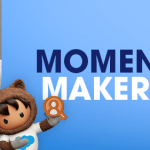With inputs from Nipun Sharma, Senior Manager, Solution Engineering, Salesforce
With mobile device users spending 90% of their device time solely on apps, businesses need to deliver intuitive mobile experiences at every stage of the customer journey. For businesses, this really means pivoting to a mobile-first approach to enhance and improve customer experience.
Mobile-optimised web pages or mobile apps?
Mobile-optimised web pages may have a wider reach, but they do not naturally support mobile interfaces and often need additional infrastructure to create personalised experiences. On the other hand, mobile apps enable deeper customer engagement in a cost-efficient manner– a critical goal for your CX initiatives. The numbers support this – time spent on shopping apps in India went up from 4.6 billion hours in 2019 to 8.7 billion in 2022.
Five steps to rapidly create and scale mobile apps for a mobile-first customer journey
1. Simplify the process of creating and managing apps
Maintaining code quality consistently is among the top challenges for app management in 2023 but is also essential for excellent CX. A seamless end-to-end app development platform can help your development teams address factors critical for a great CX, such as code quality, innovation, app security, speed-to-market, etc.
To enable this, consider a cloud-native platform that:
- Offers modern developer tools and workflows
- Enables database management and deployment scaling
- Accommodates add-ons efficiently
- Includes a single dashboard to manage apps and gain greater visibility into performance
2. Enable greater cross-team collaboration during app development
Efficient cross-team collaboration in software development improves team efficiency, learning, and creativity. Such cross-functional teams can lead to a better understanding of user needs and requirements, shorten the development process and reduce the likelihood of bugs. You can ensure greater collaboration between teams through:
- A shared workspace like Slack
- A collaborative environment for your workgroup like Heroku Teams
- Continuous integration and collective management of delivery pipelines
- Easy access for all teams to apps, stacks, and workflows
3. Integrate data from multiple sources into your mobile apps
By integrating and analysing data from multiple sources, you can identify and correct inconsistencies in processes or results provided by the app. This helps provide an improved and personalised user experience. To leverage such benefits, invest in a platform with features such as
- Data integration and synchronisation from multiple sources
- Analytical capabilities to convert different data sets for a single customer view
- Managed data services
A syncronisation solution like Heroku Connect for example, can help integrate the data from your Salesforce Deployment and Heroku Postgres database. What this means is that you can deliver personalised customer experiences on the frontend, while still getting the benefits of deep business process integration and streamlined data with enterprise apps.
Discover how Heroku can positively impact your business.
Download the Forrester Total Economic Impact Study of Salesforce Heroku



4. Closely track user behaviours to understand preferences
81% of customers expect companies to anticipate their needs. For mobile apps, this requires analysing user behaviour in real-time and making updates to the app for improved customer experience. By using low-code, drag-and-drop app development solutions, you can:
- Democratise access to user insights and app upgrades.
- Empower non-IT teams such as marketers and salespersons to introduce new app experiences to meet customer expectations promptly.
- Instil brand loyalty and confidence.
5. Protect sensitive customer data
Mobile apps remain highly vulnerable targets for cyber threats due to critical data captured during customer sign-up and points of purchase. To counter this and instil confidence in customers, you need to build secure and high-compliance apps that guarantee data privacy, data control, and enhanced data safety at every touchpoint.
Heroku: The platform of choice to create an excellent CX for the mobile-first customer
A mobile-first approach must not only have an app design suited for digital natives but also offer user interfaces and features that promise an improved CX. Salesforce’s Heroku app development platform enables developers to build beautiful, engaging mobile app experiences. It supports open-source applications synced with Salesforce apps to provide delightful customer experiences and nurture lasting relationships.
- Some of its capabilities include:
- Supports modern app architectures and solutions
- Empowers developers to code in their choice of open-source languages
- Enables cloning code and deploying apps with a single click
- Meets the needs of high-traffic mobile applications
- Connects your mobile and web apps to your CRM. So you can build and extend your Customer 360 to deliver instant sales and service insights
- Offers 360-degree customer views to drive customer satisfaction and loyalty
Build seamless, connected, personalised, and safe mobile customer experiences
























